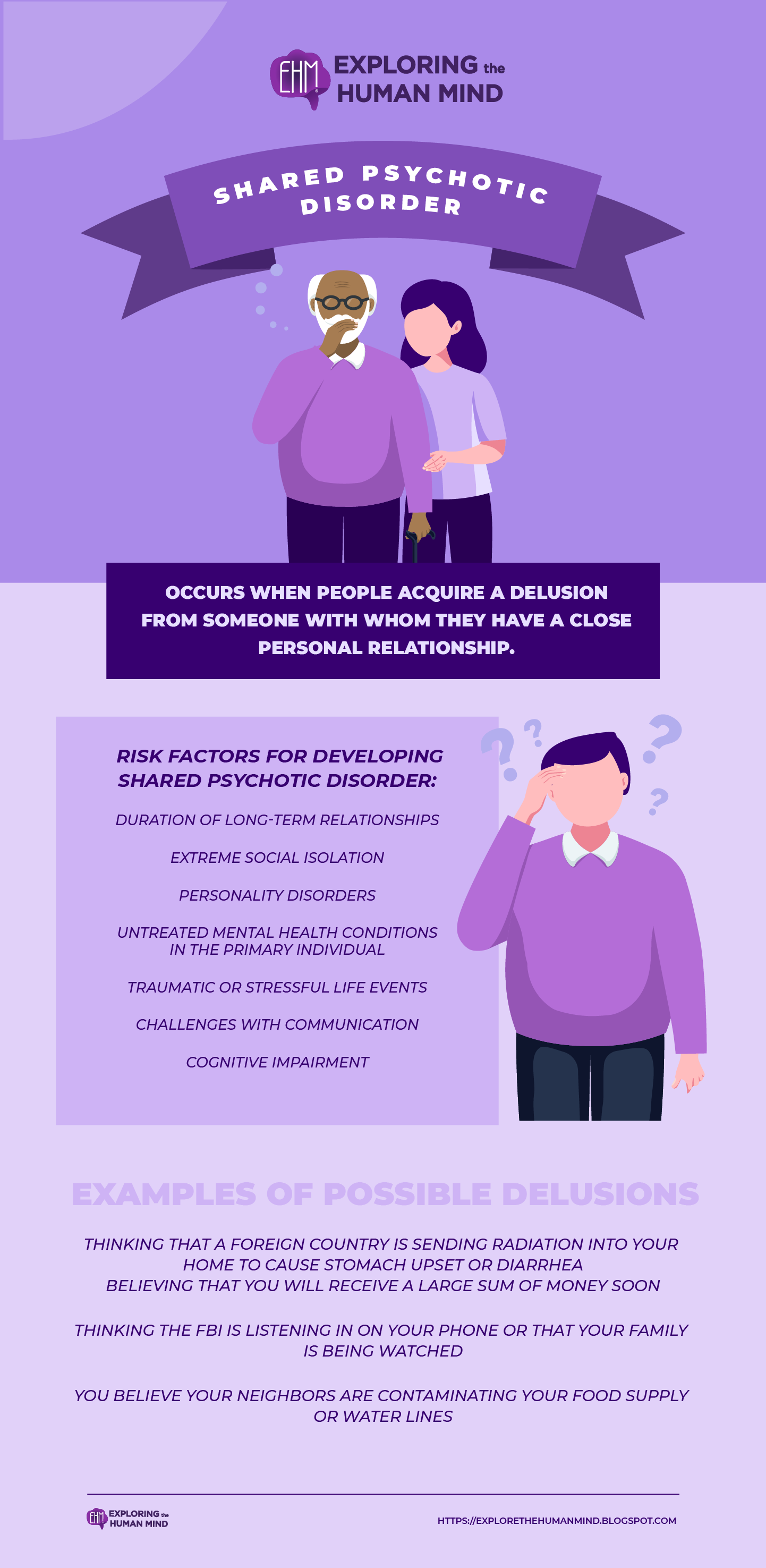Shared Psychotic Disorder
Shared psychosis (previously known as folie à deux) is now considered a subset of delusional disorder. It usually occurs in a person or group of people (usually a family) who are related to someone who has a significant delusional disorder or schizophrenia.
Although the prevalence of shared psychosis is unknown, the disorder appears to be uncommon. The patient with the primary disorder is usually the most socially dominant member of the relationship, and imposes or persuades the patient with the secondary disorder of the unusual beliefs.
It is critical to determine who in the relationship has the primary psychosis because the person with the secondary disorder does not typically maintain the delusional beliefs when separated from the person with the primary disorder.
Causes and Risk Factors
Shared psychotic disorder is a rare condition with many unknown causes. More research on this disorder is still needed, as much of the information available is based on case reports.
The following are some risk factors for developing shared psychotic disorder:
- Duration of long-term relationships
- Extreme social isolation
- Personality disorders
- Untreated mental health conditions in the primary individual
- Traumatic or stressful life events
- Challenges with communication
- Cognitive impairment
According to one study from 2006, the development of this disorder may also be influenced by the nature of the relationship between the people affected. Shared psychotic disorder is most common in married couples, but it is also common in close siblings.

vectors by Freepick; graphic design by Vadot
Here are a few more examples of possible delusions:
- Thinking that a foreign country is sending radiation into your home to cause stomach upset or diarrhea
- Believing that you will receive a large sum of money soon
- Thinking the FBI is listening in on your phone or that your family is being watched
- You believe your neighbors are contaminating your food supply or water lines
Both persons will appear peopled, fearful, and suspicious of others in general. If their delusions are challenged, they will become defensive or angry. Those suffering from grandiose delusions may appear euphoric.
Reference:
Tamminga, C. (2022, April 4). Substance-/Medication-Induced Psychotic Disorder. MSD Manual Professional Edition; MSD Manuals. https://www.msdmanuals.com/professional/psychiatric-disorders/schizophrenia-and-related-disorders/substance-medication-induced-psychotic-disorder
Grohol, J. M. (2016, May 17). What Is Shared Psychotic Disorder? Psych Central; Psych Central. https://psychcentral.com/disorders/shared-psychotic-disorder-symptoms
Feras Al Saif, & Yasir Al Khalili. (2022, August 29). Shared Psychotic Disorder. Nih.gov; StatPearls Publishing. https://www.ncbi.nlm.nih.gov/books/NBK541211/#:~:text=Introduction-,Shared%20psychotic%20disorder%20(folie%20%C3%A0%20deux)%20is%20a%20rare%20disorder,based%20on%20a%20delusional%20belief.
Verywell. (2020). Get the Facts About Shared Psychotic Disorder. Verywell Mind. https://www.verywellmind.com/an-overview-of-shared-psychotic-disorder-4782190






Comments
Post a Comment